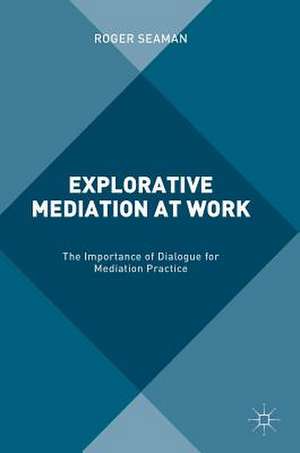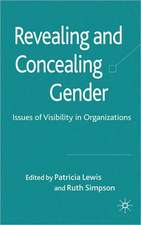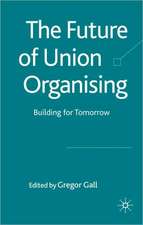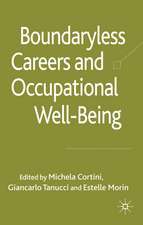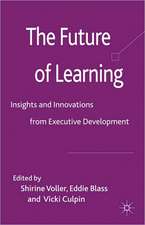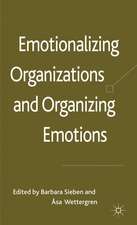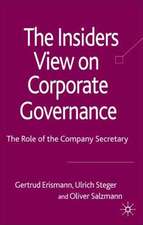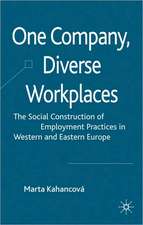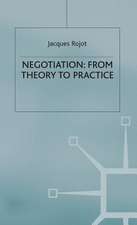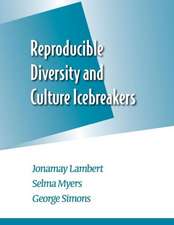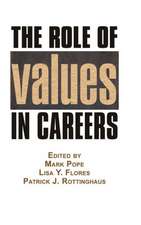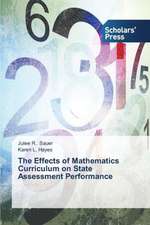Explorative Mediation at Work: The Importance of Dialogue for Mediation Practice
Autor Roger Seamanen Limba Engleză Hardback – 22 iun 2016
Preț: 640.88 lei
Preț vechi: 753.97 lei
-15% Nou
Puncte Express: 961
Preț estimativ în valută:
122.63€ • 128.05$ • 101.26£
122.63€ • 128.05$ • 101.26£
Carte tipărită la comandă
Livrare economică 15-29 aprilie
Preluare comenzi: 021 569.72.76
Specificații
ISBN-13: 9781137516725
ISBN-10: 1137516720
Pagini: 260
Ilustrații: IX, 260 p.
Dimensiuni: 148 x 210 x 21 mm
Greutate: 0.43 kg
Ediția:1st ed. 2016
Editura: Palgrave Macmillan UK
Colecția Palgrave Macmillan
Locul publicării:London, United Kingdom
ISBN-10: 1137516720
Pagini: 260
Ilustrații: IX, 260 p.
Dimensiuni: 148 x 210 x 21 mm
Greutate: 0.43 kg
Ediția:1st ed. 2016
Editura: Palgrave Macmillan UK
Colecția Palgrave Macmillan
Locul publicării:London, United Kingdom
Cuprins
Chapter 1Introduction.- Chapter 2 A spectrum of mediator influence.- Chapter 3 Mediationin the workplace.- Chapter 4 Political awareness and dialogue.- Chapter 5 Instrumentalmediation.- Chapter 6 Relational mediation.- Chapter 7 Explorative mediation:An instrumental, ethical and political approach.- Chapter 8 Conclusion.- References.-Index
Notă biografică
RogerSeaman is a freelance workplace mediator with practical experience of mediatingand facilitating democratic, small group discussions. Receiving his PhD inworkplace mediation in 2010, Dr Seaman’s research focuses upon an approachknown as ‘Explorative Mediation’ that is built upon a respectful critique ofthe Transformative and Narrative schools.
Textul de pe ultima copertă
Exploring and critiquing various methods of mediation, thisinnovative book critically develops a new explorative practice in the field.Considering ways in which mediators may influence disputing parties, especiallyin the workplace where mediators are paid to intervene, Explorative Mediationat Work questions the commonclaim that mediation is a neutral intervention. The difference between offeringminimally intrusive support and acting to secure a containment and evensuppression of workplace conflict is heavily dependent upon a mediator’spractices. At worst, engineering resolution may tarnish mediation’sreputation for impartiality. At best, mediation can win the trust of parties inconflict, facilitate a democratic engagement and be of real benefit toorganizations. This book aims to demonstrate the latter in proposing a practicethat supports parties to seek out dialogue from which relationships may berebuilt and practical problems resolved.
